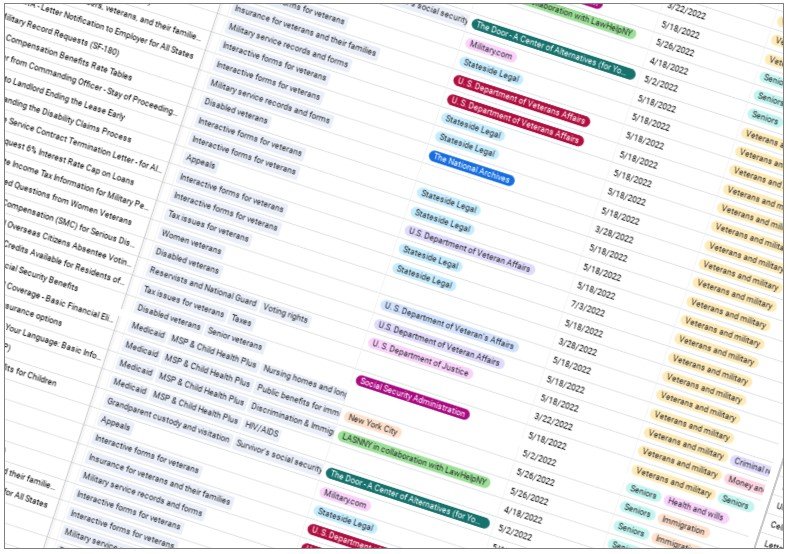
ARTICLE
Content Audits: Easier Than You May Think
If your organization has a website with hundreds, thousands, or even tens of thousands of pages, it’s common to have pages out of date, redundant, or even irrelevant to your mission.t's much easier to prioritize the creation of new content than to review or update old content. If you don’t address the problem, though, it only becomes bigger and bigger, until the idea of trying to figure out what pages are actually useful becomes incredibly daunting.
A content audit can help. By going through every page one-by-one, you scan the page and then tag it for criteria like whether it appears up-to-date, redundant, relevant, and well-written. While this is a mid-sized project, it's a good investment in your user experience. It's not uncommon to find that 20-30% of your content can immediately be archived, meaning that visitors will have that much less bad information to wade through to get to the rest. Plus, it sets you up for a project to update your site and for a process to periodically review and update your articles over time.
It's not uncommon to find that 20-30% of your content can immediately be archived.
Let’s walk through some reasons that conducting a content audit might be more doable than you might think.
An initial audit doesn't need to be done by a subject matter expert.
You’re not likely to find people who specialize in doing content audits, but you can look for mid-level writers or researchers at $40-$60/hour.
The goal of an audit is to get your hands around what content is solid, what's definitely not, and what needs to be reviewed. This can be done by a smart junior person who's reliable. The key, in fact, is to find someone willing — someone who can spend 40-60 hours scanning and tagging articles without wanting to to stab their eyes out.
There’s a lot of things about this that make it well suited as a project for a contractor. Contractors can focus on the task at hand without the distractions of other priorities. Plus, then your staff can continue to use their expertise on new articles. You’re not likely to find people who specialize in doing content audits, but you can look for mid-level writers or researchers at $40-$60/hour.
It's not terribly complicated
Read my How to Do a Content Audit, in Six Steps article for more detail, but at a high level:
Start by defining your audit criteria. For instance, you can define whether the article is obviously out-of-date, redundant, or poorly written for the web.
Export a list of every article, with URL and the data you have, into a gigantic spreadsheet or a tool like AirTable. Create columns for each of your criteria.
Conduct the audit, assuming that it will take an average of 2-4 minutes per page to scan through and then tag the article with the criteria you decided on.
Archive pages that are obviously not needed, as your short term win.
Set up a process for reviewing and updating pages that need work, based on a prioritization of the pages.
It's not THAT expensive
Let’s estimate contracting out the entire audit for a 1000 page site:
To oversee the project, you'll need about 10 hours of a senior person to get the project organized and manage it at a high level. Let’s estimate high, at $150/hour, though you can likely find someone for less).That's $1500.
If it takes 3 minutes on average for a $50/hour contractor to audit each page, that's $2500.
If you want a recommendation on next steps and priorities, that's maybe another 5 hours from your senior consultant and 10 from the junior person, at $1250 total.
So that's $4000 for the core audit, or $5250 including recommendations for next steps. Or thinking about it another way, it’s the cost of maybe 5-8 new articles.
It’s a little bit of an investment, but it’s a great bang for the buck. And it’s an essential first step to establish a solid content strategy and update process. Your site will thank you.
About Laura S. Quinn
Laura S. Quinn has helped nonprofits with websites for over 25 years, both on-staff and as a consultant. These days, she’s a Nonprofit Website Coach who supports nonprofit staff with weekly or bi-weekly calls as they work on website projects, and a Website Strategist. And she publishes the Nonprofit Website Insider, a (free!) twice-monthly newsletter with curated articles for website staff.

